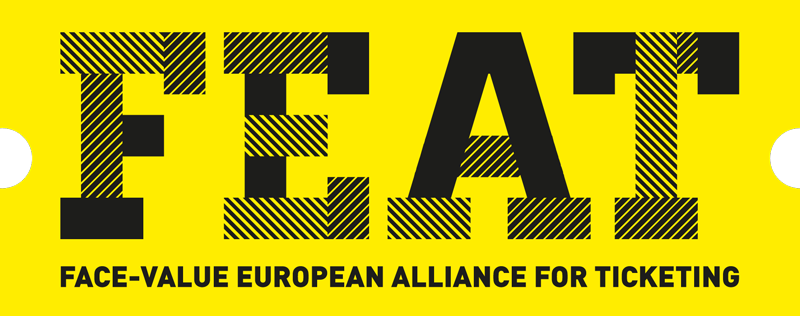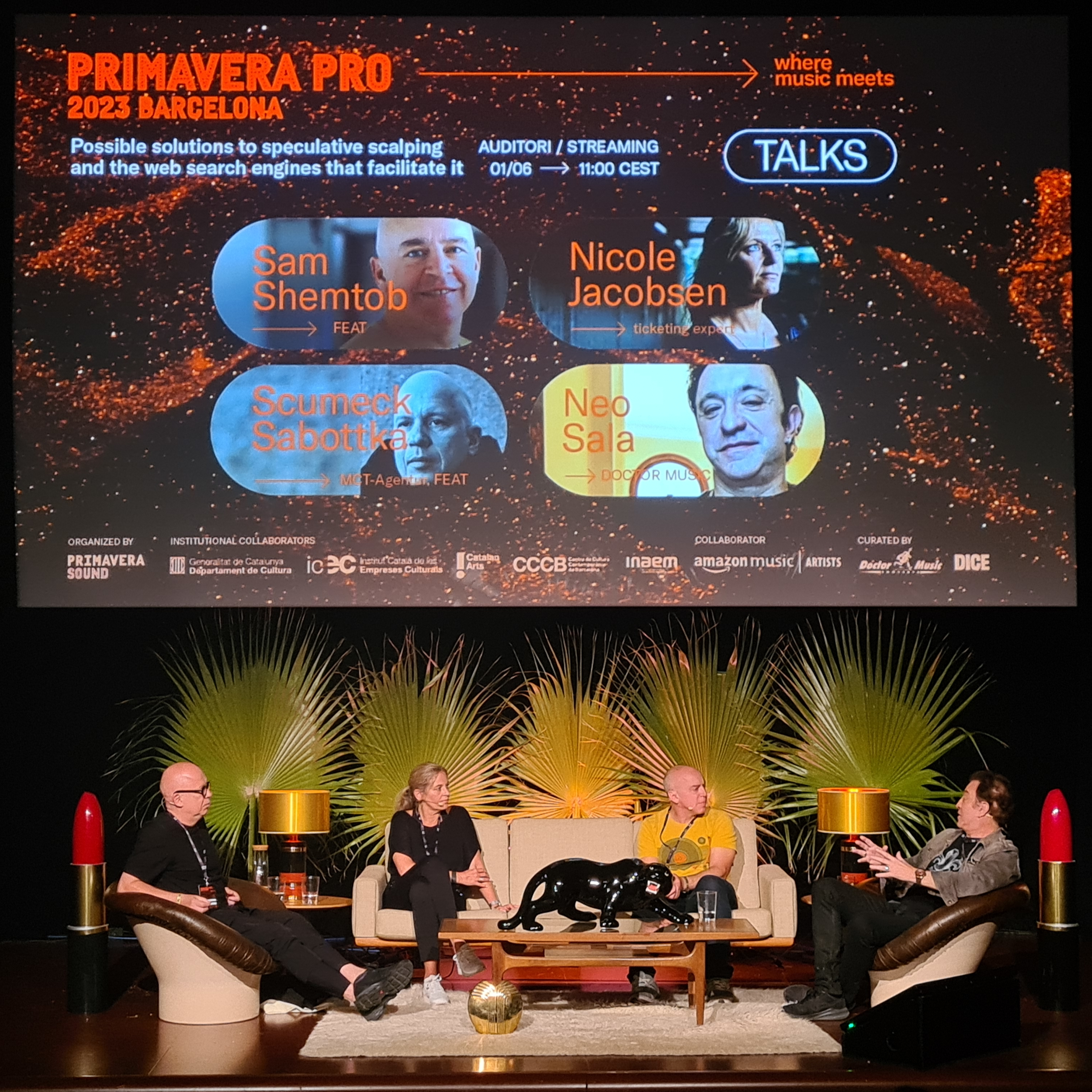A FEAT panel at Primavera Pro has publicly called for search engines to question their role in helping to facilitate unauthorised ticket resale – a major cause in leading fans to overpriced, misleading and often invalid tickets.
The panel – titled Possible solutions to speculative scalping and the web search engines that facilitate it – took place in-person and via livestream, and consisted of Neo Sala (Doctor Music), Nicole Jacobsen (previously tickets.de), Sam Shemtob (FEAT) and Scumeck Sabottka (MCT-Agentur).
Search engines host advertisements from unauthorised ticket resale platforms like viagogo, where professional ticket scalpers often resell tickets at way beyond their face value. This means that, when searching for their favourite artist’s shows, fans are regularly met with search results offering illegitimately-listed overpriced tickets on resale marketplaces. These paid advertisements appear at the top of the search page, above organic listings for official ticket sellers.
The panel discussed how the advertising policies of Google and other search engines, doesn’t permit advertising that deceives users, either by excluding relevant information or providing misleading information. But the panel suggested Google did not appear to be adequately enforcing this policy. The panel pointed out that, during Google’s brief ban on advertising from viagogo in 2019, global traffic to the site fell by two thirds, illustrating the extent of the search engine’s role in attracting fans to unauthorised resale platforms.
Addressing the need for greater consumer understanding of ticket resale, the panel also touched on the development of “Make Tickets Fair!”, a new Europe-wide campaign educating fans about safe ticket buying. Developed by a cross-industry working group, “Make Tickets Fair!” is already promoting best practice and sharing resources for fans and event organisers through its website.
Neo Sala, FEAT Director and Founder & CEO of Doctor Music, said, “We see a close parallel between the situation now with the live events industry, to that in the noughties with the record business. I think we all remember when you’d Google a song name and ‘mp3’ and you’d be met with piracy links as the first, second, third results. Today, try Googling ‘Harry Styles tickets’ and you’ll see a link to unauthorised, overpriced tickets right at the top. The live industry needs to ask Google to take the same sensible steps as they did with the record industry and start guiding fans to trusted, official sources.”
Sam Shemtob, FEAT director, added, “Across Europe, countries including Belgium, France, Ireland and others have outlawed unauthorised ticket resale. The European Court of Justice meanwhile has ruled that event tickets are a contract for services, subject to terms and conditions of the event promoter; and the incoming Digital Services Act promises to tighten consumer protections in e-commerce further. In this environment of strengthening legislation, search engines ought to start asking what kind of companies they are. Do they want to enable the activities of ticket scalpers, and support the anti-consumer and anti-artist practices of unauthorised resale platforms? Or, do they want to stand up for their users and guide them toward legitimate tickets for the events they want to attend? We hope companies like Google will choose the latter option.”

